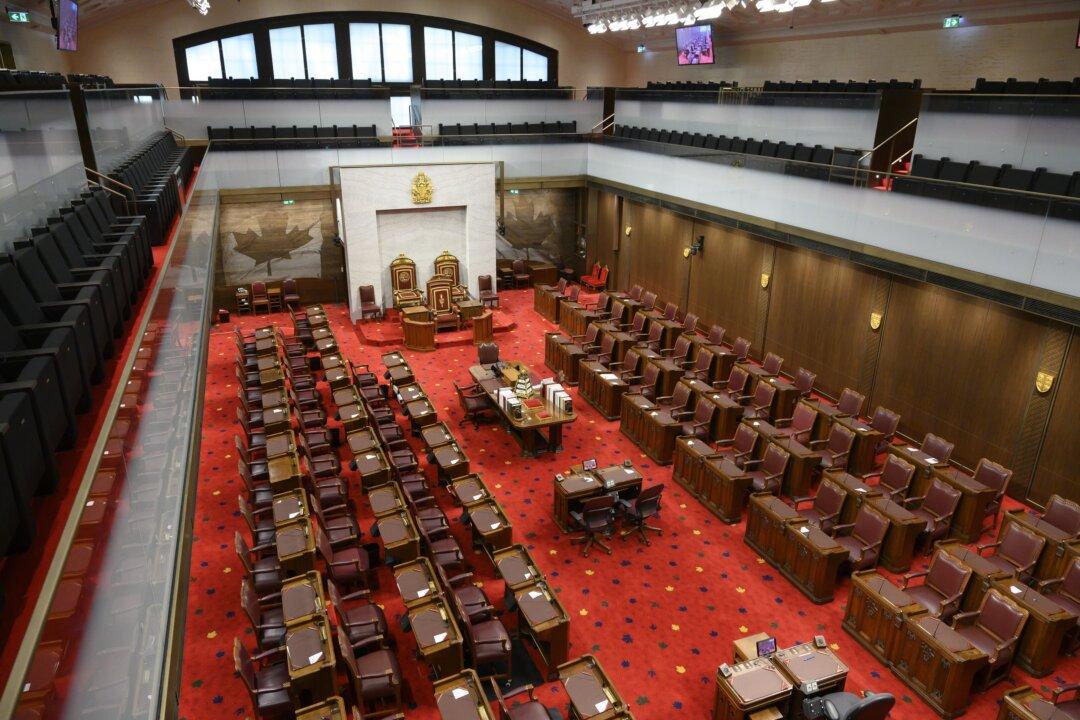OTTAWA—Senators will have to be fully vaccinated against COVID−19 if they want to participate in person in Senate proceedings.
Senate Speaker George Furey announced the new policy Thursday following consultations with the leaders of the various groups in the upper house.





